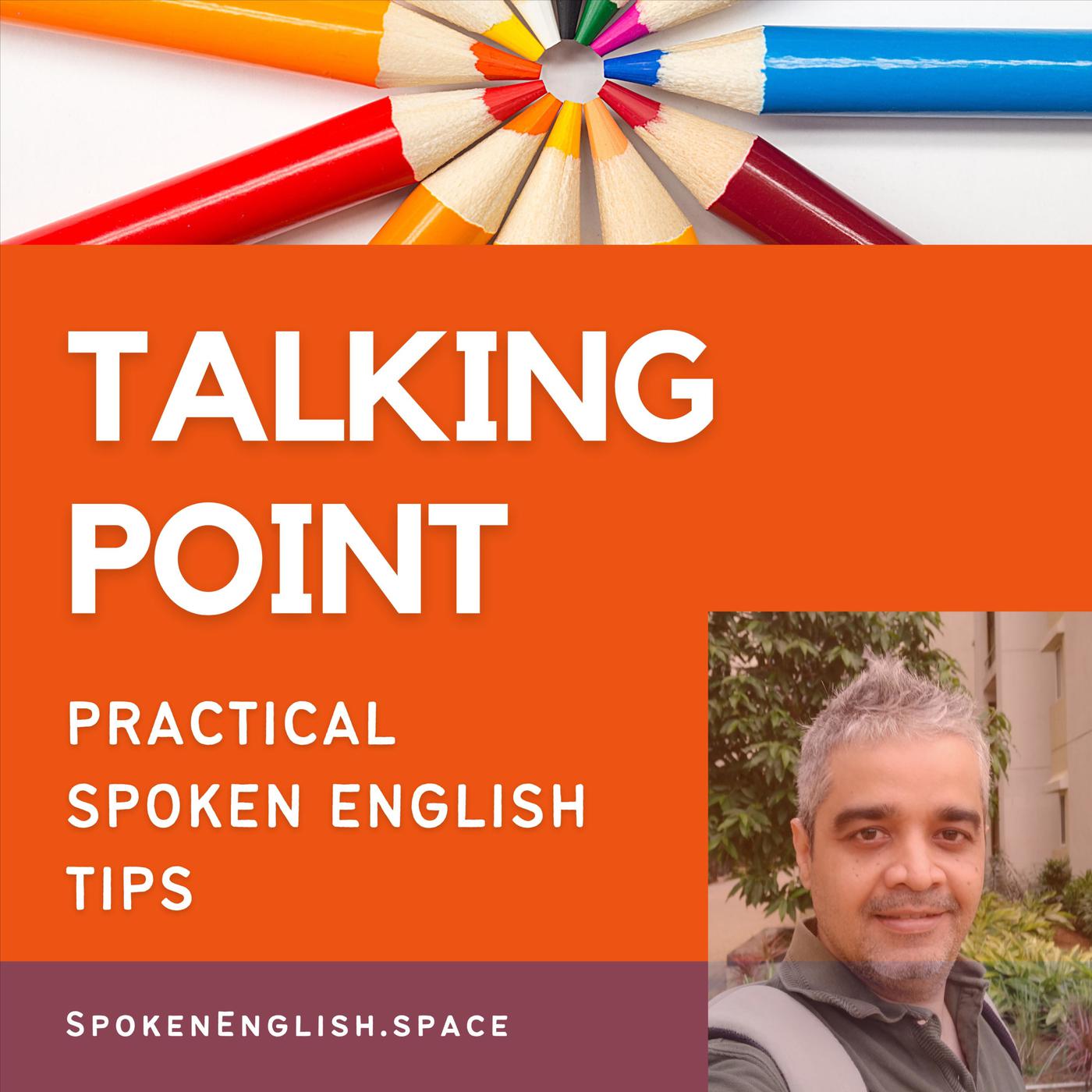
Practical Spoken English tips and guidance for young professionals, and for students preparing to enter the workforce. This podcast focuses on a few English idioms and phrases in each episode. The goal is to introduce contemporary, colloquial, conversational, and sometimes slang expressions that are in common use, and can be adopted in everyday conversation easily.
Most people feel embarrassed by the English they speak. A mistake here and there, a word they misuse--leads to that strong sense of shame. It's commonly expected that as your English gets better, this sense of embarrassment will go away. But feeling embarrassed in this way is really, really, damaging to your learning efforts, and prevents you from improving your spoken English well. Find out why, and learn how to deal with this problem.
In this episode, after a quick discussion of abstract concepts like words and meaning, we discuss the various different meanings of the expression 'take in.' Looks deceptively simple, but these common expressions do a ton of work for us by changing their meaning according to the context! Tune in, to take it all in!
This episode introduces the second misconception that is very likely adversely impacting how you think about learning English, and how efficiently you are able to do it. As you listen, you will understand exactly what is wrong with asking 'What's the meaning of this word?'
This is part two of our discussion of a couple of fundamental misconceptions about language and language learning that really hold you back from learning English effectively. These are misconceptions that most people hold unconsciously, but their impact on your learning habits, and approach to learning language is so far reaching, so fundamental, that if you fix just these two misconceptions, it will make a world of difference to how effectively and efficiently you learn English, and how naturally, comfortably you are able to use it.
In this episode, let’s take some time to talk about a couple of fundamental misconceptions about language and language learning that really hold you back from learning English effectively. These are misconceptions that most people hold unconsciously, but their impact on your learning habits, and approach to learning language is so far reaching, so fundamental, that if you fix just these two misconceptions, it will make a world of difference to how effectively and efficiently you learn English, and how naturally, comfortably you are able to use it.
This episode continues the focus on sarcasm from the previous episode, and we look at some more ways of conveying sarcasm effectively. Conveying sarcasm in writing is tricky, so we'll also look at a new convention that allows us to convey sarcasm effectively in writing. And then, rather than going on about sarcasm, we conclude by discussing the expression 'to be on about.'
Learning how to be sarcastic in English can help you communicate better, and also help add a dash of fun and humor in your conversation. In this episode, we discuss the importance of sarcasm, and also learn a few phrases that will help you express sarcasm in an effective yet entertaining manner.
Using another language as a medium, and relying on translation to understand new words and phrases is common. While this starts off being convenient, in the long run this strategy is detrimental to learning efficiency. In this episode, we discuss why translation based learning is not ideal, and what to do instead.
Improving your Spoken English isn't hard--it can take a lot of work, but it isn't hard--IF you have a clear focus on effort versus outcome. In this first episode of the podcast, we discuss two key guiding principles that students need to keep in mind, and some pitfalls and misconceptions they need to avoid, in order to get the best results possible for every minute of learning effort.